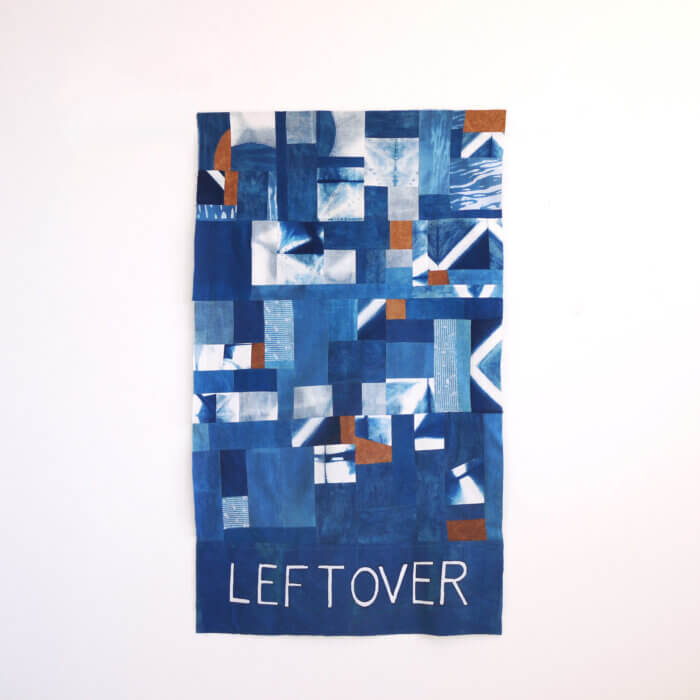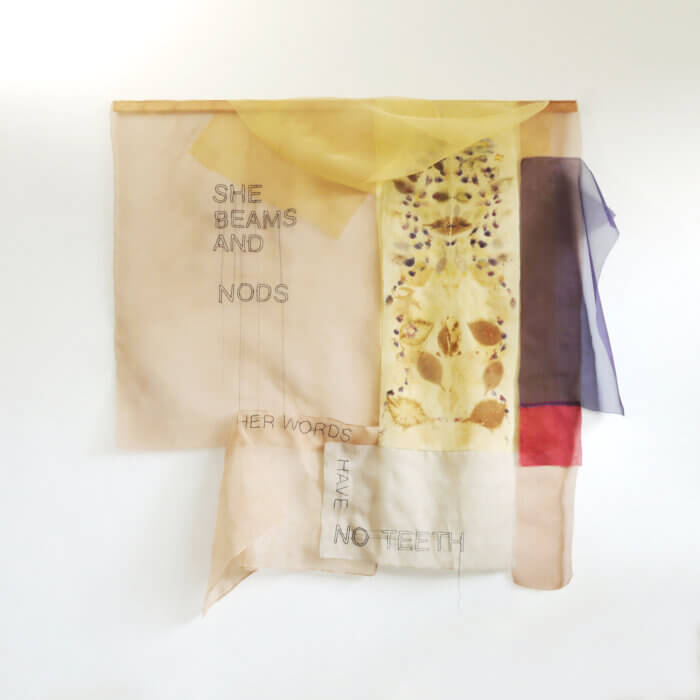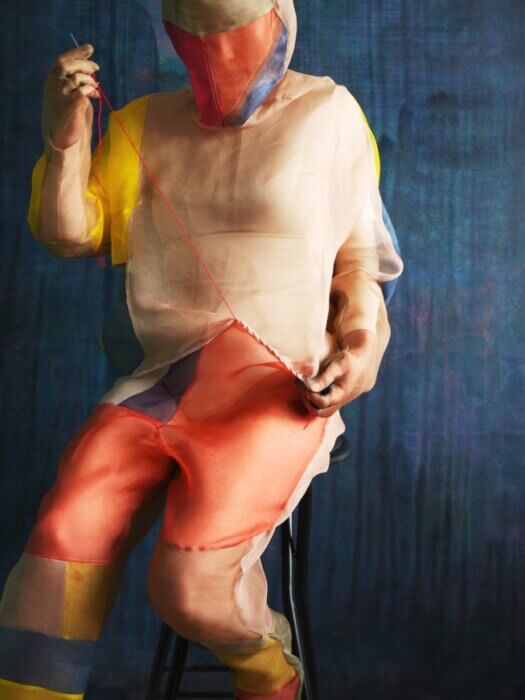Jul. 12, 2023 By Tammy Scileppi
What comes to mind when you hear the words, “Prayer Cocoon?”
If you’re wondering about their meaning, you should experience a memorable and thought-provoking exhibition called “Prayer Cocoon: PPE in the New Era” by Queens-based interdisciplinary artist Dani Changah Song – on view now through August 27 at Voelker Orth Museum Bird Sanctuary & Victorian Garden, located at 149-19 38th Avenue, in Flushing.
Art lovers who missed Song’s surreal and profoundly symbolic, performance – as wearable sculpture – back in June, will surely appreciate her recent works currently on display at the museum: textiles made of natural dyes and embroidery on cotton and silk. Inspired by Bojagi, Korea’s traditional wrapping textiles, these unusual creations exude a light and fluid appearance, and each artwork bestows a sense of sanctity upon its surroundings. The works represent vessels of prayers and yearnings, according to cultural narratives and myths.

“Let Me Be the Prism of Your Light, in the Belly of the Beast” — Natural dye and embroidery on silkCourtesy of Voelker Orth Museum Bird Sanctuary & Victorian Garden
Through her performance art, Song was hoping that the audience would understand what her Prayer Cocoon symbolized. According to the artist, it metaphorically embodied the process of rebirth through the act of sewing. Encasing herself in a loose bodysuit, it seemed as if she was suggesting a direct correlation to entering a hibernating state within a cocoon – thus envisioning her “safe attire” as a new type of Personal Protective Equipment (PPE) for a post-pandemic world.
“The Museum is excited to be exhibiting this new work. It resonates with our collective re-emergence from the pandemic and artistically, as a connection to the natural environment and materials drawn from the garden,” said Museum Director Deborah Silverfine. “Many of Song’s delicate colors come from garden plant dyes, and you may find some of her literary references in the Museum’s library.”

“She Beams and Nods” — Natural dye and embroidery on silkCourtesy of Voelker Orth Museum Bird Sanctuary & Victorian Garden
The entire exhibit is rich with symbolism.
Sewing, which symbolizes the primal act of constructing a safe haven, is a fundamental labor associated with sheltering and nesting. And textiles have historically served as materials for nomadic shelters and protective coverings. Through her work, the artist – who was born in Seoul, Korea, and moved to the United States with her family when she was a teen – explores the contemporary meaning of “protection and shelter in the post-COVID era.”
What is your message to your audience?
The performance and the artworks in the exhibition were made over the past few years, a time when the pandemic touched the lives of everyone in some way or another. While each person’s experience was unique, there’s no denying that the first three years of the pandemic have been intense for all of us,” Song told QNS.
“For me, these works serve as a personal acknowledgement, a way of reassuring myself that I’ve made it through okay. They’re like a gentle pat on the back, reminding me that I’ve weathered the storm,” she added. “But I don’t want to celebrate alone. I want to share this triumph with the community because, you know what? We’ve emerged from the other end stronger than ever, and these artworks capture the essence of our collective resilience and determination.”

Performance still from “Prayer Cocoon” — wearable sculpture. Natural dyes on silk.Photo courtesy of Makoto Kishino
Song said she is inspired by nature: “It’s everywhere, even in the heart of the concrete jungle. I’ve been a city dweller for most of my life, but during the pandemic, when the streets were deserted, I started noticing how nature sneaks its way into the urban landscape. It’s wild, it’s fragile and it’s wonderfully fascinating.”
The artist shared her vision for the future: “I dream of establishing a dedicated space – a natural dye workshop, in Queens, that would be open to the community.”
“To me, art is meant to be shared, and I believe sharing knowledge is an integral part of the artistic process,” she added. “Natural dyeing, in particular, is an incredibly inspiring and therapeutic activity that transcends age boundaries. Through working with botanical dyeing, we not only forge a deeper connection with nature but also cultivate a heightened sense of sustainability. It would be a joy to create a space where people of all ages can come together to explore the wonders of natural dyeing.”
Song, who is offering a textile dyeing workshop on July 18 at the museum, continued: “Of course, running a natural dye workshop requires a semi-permanent space to accommodate the necessary equipment and materials. So, here’s my call to action: If there’s anyone out there, who wants to provide a space for the community, in Queens, I’m all ears! Let’s come together and create a nurturing environment, where artistic exploration and community engagement can flourish. It’ll be a venture that benefits us all and leaves a lasting impact.”
The “Prayer Cocoon” exhibition is made possible, in part, with public funds from the Queens Arts Fund.